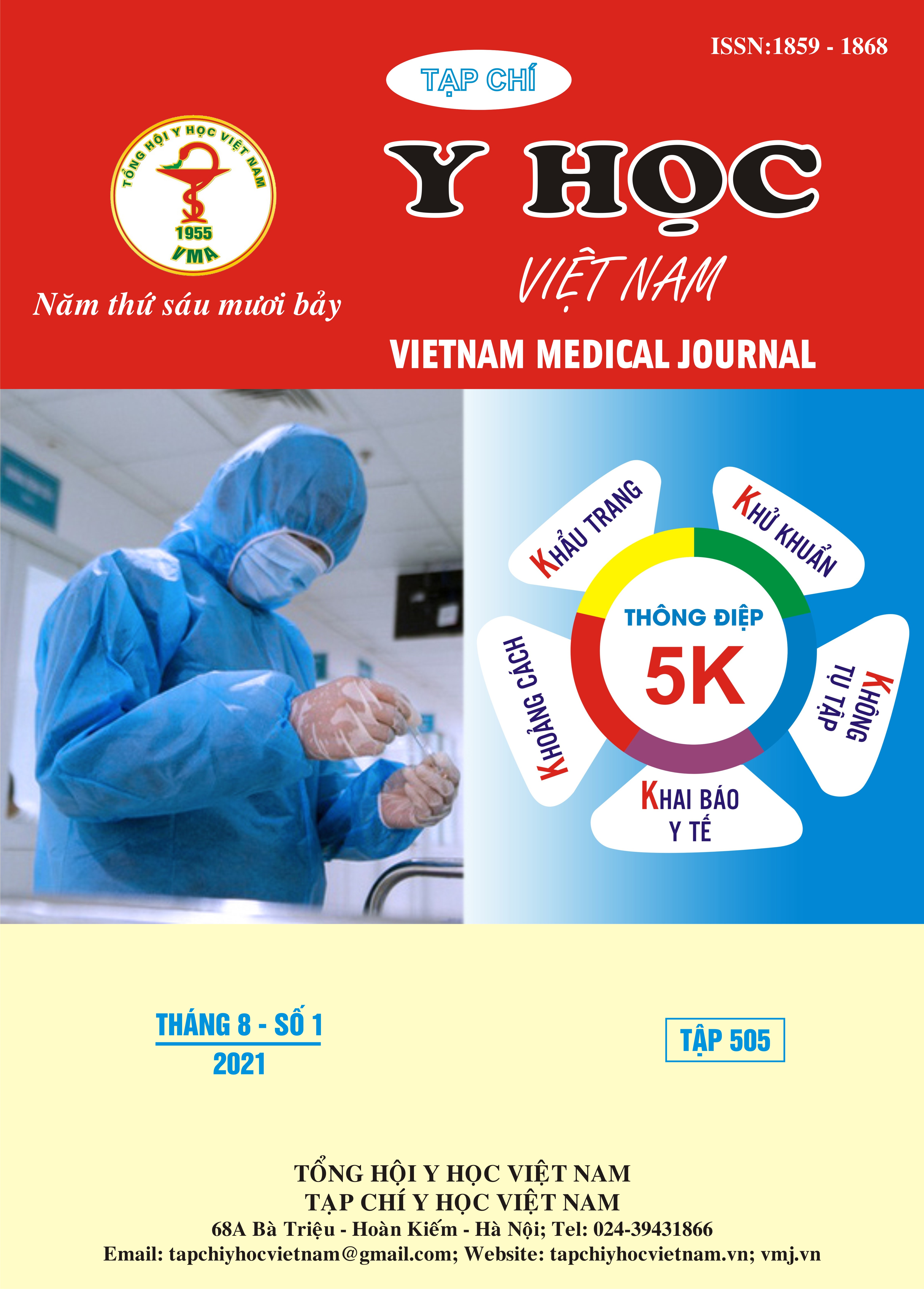NUTRITIONAL STATUS IN CHILDREN WITH INFLAMMATORY BOWEL DISEASE AT THE NATIONAL CHILDREN’S HOSPITAL
Main Article Content
Abstract
Malnutrition and growth retardation are the main extraintestinal manifestations of inflammatory bowel disease in children. Aim: to describe a nutritional status in children with inflammatory bowel disease. Materials and methods: a case series included 31 patients diagnosed inflammatory bowel disease at the National Children’s Hospital from July 2020 to March 2021. Results: Morbidity rate of male/female was 1,6:1. The mean age at onset of symptoms was 48,0 ± 50,3 months. 42% children were growth retardation, of which 22,6% children were severe malnutrition. 35,5% of children were underweight. Among them, moderate and severe malnutrition was 9,7% and 25,8%, respectively. Anemia was observed in 25,8% children. Prevalence of calcium and iron deficiency was 90,3% and 70%, respectively. 34,6% children were vitamin D insufficient and 50% children were zinc deficient. Conclusion: Children with inflammatory bowel disease have a high rate of malnutrition, in which micronutrient deficiencies are common.
Article Details
Keywords
nutrition status, inflammatory bowel disease, children
References
2. Song SM, Kim Y, Oh SH et al (2014). Nutritional Status and Growth in Korean Children with Crohn’s Disease: A Single-Center Study. Gut Liver. 2014;8(5):500-507. doi:10.5009/gnl13183
3. Aurangzeb B, Leach ST, Lemberg DA et al (2011). Assessment of Nutritional Status and Serum Leptin in Children With Inflammatory Bowel Disease. J Pediatr Gastroenterol Nutr 52: 536-541. doi:10.1097/MPG.0b013e3181f87a95
4. Nguyễn Thị Ngọc Hồng, Nguyễn Thị Việt Hà (2020). Đặc điểm lâm sàng và tổn thương trên nội soi của trẻ bị bệnh ruột viêm tại bệnh viện Nhi trung ương. Tạp chí Nghiên cứu Y học, 128(4), 58-68.
5. Aljomah G, Baker SS, Schmidt K, et al (2018). Anemia in Pediatric Inflammatory Bowel Disease. J Pediatr Gastroenterol Nutr. 2018;67 (3):351-355. doi:10.1097/MPG.0000000000002002
6. Massironi S, Rossi RE, Cavalcoli FA, et al (2013). Nutritional deficiencies in inflammatory bowel disease: therapeutic approaches. Clin Nutr Edinb Scotl. 2013;32(6):904-910. doi:10.1016/ j.clnu.2013.03.020
7. Fritz J, Walia C, Elkadri A, et al (2019). A Systematic Review of Micronutrient Deficiencies in Pediatric Inflammatory Bowel Disease. Inflamm Bowel Dis. 2019;25(3):445-459. doi:10.1093/ ibd/izy271
8. Wiskin AE, Fleming BJ, Wootton SA, et al (2012). Anaemia and iron deficiency in children with inflammatory bowel disease. J Crohns Colitis. 2012;6(6):687-691. doi:10.1016/j.crohns.2011.12.001
9. Alkhouri RH, Hashmi H, Baker RD, et al (2013). Vitamin and Mineral Status in Patients With Inflammatory Bowel Disease. J Pediatr Gastroenterol Nutr. 2013;56(1):89-92. doi:10.1097/MPG.0b013e31826a105d


